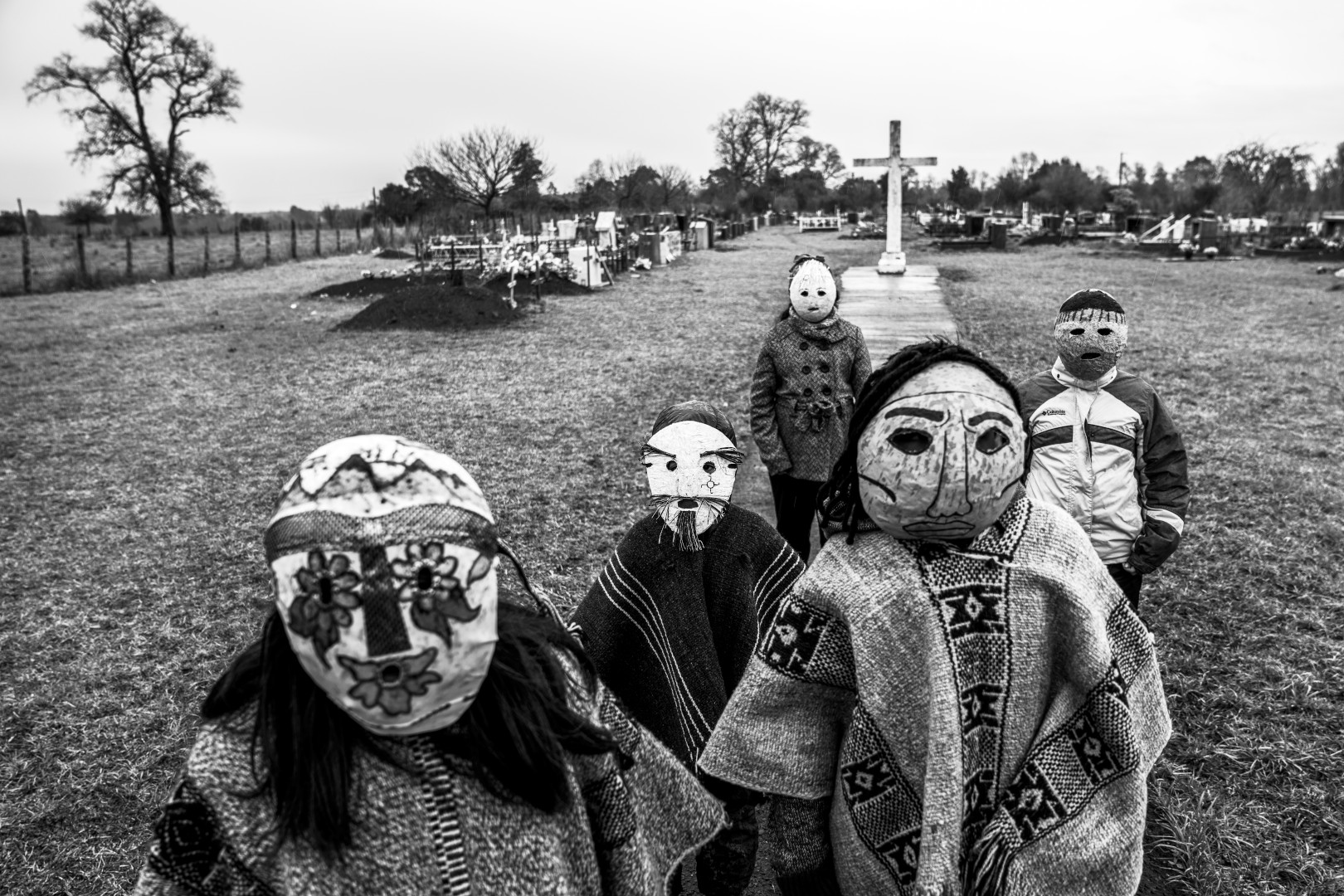The Spanish Crown found an unimagined pitfall in its colonizing plan in America: the Mapuche people. Unlike the Incas, who had a centralized power, the Mapuche communities were always autonomous, and in this way the resistance and battles multiplied for almost three centuries in part of what is now known as Argentina and Chile. Such was the warrior capacity of the Mapuche people, that the Spanish Crown in the end chose to sign agreements and recognize territories.
A few decades after the creation of the Chilean and Argentine States, military campaigns were unleashed between 1860 and 1885, considered by the Mapuche people as the second invasion and misnamed “Pacification of the Araucania” and “Conquest of the Desert.” Each with its particularity, both represented the bloodiest ethnic genocide in the region.
On the Argentine side (Puelmapu) most of the original population was killed, raped, imprisoned, enslaved or marginalized to remote and poor areas. All machis, religious and spiritual authorities were murdered, and the social life of their communities was destructured. On the Chilean side (Gulumapu) the military outpost was similar, with the difference that as there were more communities, the number of survivors was greater, including some ancestral authorities who were also stripped of their lands, which passed to the hands of landowners, military and subsequently to European settlers called to “civilize” the nation.
The official history of Argentina and Chile tried for years to hide what, in part, was repeated during the last military dictatorships: territorial recovery processes that had begun in the 1960s were crushed with violence and death.
However, in the last twenty years different communities began new recovery processes, which are not only limited to the territory, but also to the customs, spirituality, language and history that was taken away by the victorious armies. Many of these communities support strong defenses of the Ñuke Mapu (Pachamama), opposing extractive projects of different kinds: forestry, mining, hydroelectric, oil companies. For this reason, because of damaging investments of multinationals and millionaire businesses, the Argentine and Chilean states began a new crusade against the Mapuche people, which includes murders and a systematic persecution through Justice, state forces and the media.
With prisons full of Mapuche political prisoners, and many other clandestines to avoid falling into the grip of Justice in which they do not believe, tensions and violence are daily. Human rights violations are the order of the day, and the victims are also Mapuche children. Meanwhile, the world looks the other way.




